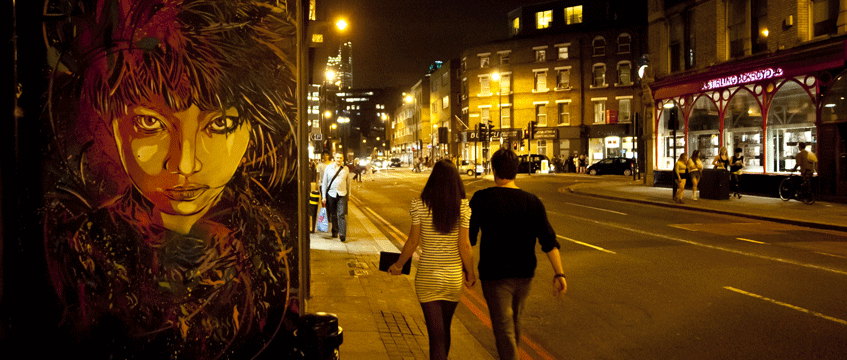As the jewel in London’s night-time economy suffers a massive political blow, what does the future hold for Hackney?
London’s night-time economy should be booming, with the long-promised 24-hour tube now operating at weekends, and the appointment of a Night Tsar nearly two years ago to beat the drum for an entire sector.
But recent figures from the Office for National Statistics reveal young Londoners are turning their back on the capital. For the first time since 2006, more people in their 20s and 30s are leaving London for other parts of the UK than the other way round – nearly 3,000 every month.
Housing affordability, coupled with increases in opportunities in the regions, are the main factors.
Recent changes in licensing laws highlight a backlash from certain local authorities towards the night-time economy. The fact it comes from arguably the “hippest” and most vibrant borough is disheartening for those in the sector.
Young Londoners who live in Hackney certainly don’t choose to call it home for its affordable rents. They do so due to its creativity, culture and opportunities. And they pay through the nose for the privilege.
If it was Richmond or Bromley, you might expect it and – let’s be frank – consider it not too much of a loss. But Hackney?
New curfews
Hackney Council recently brought in new restrictive legislation for its night time economy. In short, Shoreditch’s Special Policy Area was doubled in size.
This requires new venues to prove they won’t add to a “cumulative negative impact” of other establishments, as well as impose strict curfews, with new venues having to close by 11pm on weekdays and midnight at weekends.
Those against the new rules argue it will stifle progress and innovation among the club and bar scene and force up the value of licenses, with what’s left, sterile and soulless. It is hard to argue against.
The Capital’s capital: London’s night-time economy reaps rewards
But it is also the way in which it was done that has riled many.
Hackney Council’s own consultation on the proposed plan revealed residents were overwhelmingly against the plan, with 75% of them saying they were opposed to the clampdown on the borough’s night-time economy. In addition, 84% were against the “core hours policy”, which expects new bars to close early.
This certainly doesn’t look like the “will of the people”.
“We Love Hackney”, a residents group of more than 4,000 local supporters on Twitter, said: “It’s 11pm. Your new home time across the whole of Hackney if Hackney Council get their way tomorrow. Retweet if you’re still up.”
Responding, mayor of Hackney Philip Glanville said: “Sorry missed this, was in the Spoons,” referring to Wetherspoons.
Hackney on the up
It is no secret that Hackney has been one of the most gentrifying boroughs of recent years, benefiting from an explosion in jobs in the nearby City of London and the now huge tech scene with its roots around Old Street roundabout.
A young, highly skilled and creative workforce duly followed, as did the trappings that make Hackney such a vibrant place to live.
The average house price in the borough, according to the ONS, is now way north of half a million pounds. Although prices have stabilised in recent years, they’ve been higher than that level since the beginning of 2016.
Rents, too, are sky high. According to the VOA, median average rents across the borough were above £1,600 in Q3 2017. Back in Q2 2011, they were less than £1,150. Again, the rate of growth has far outstripped other parts of the capital.
Mayor hits back
Writing in the Guardian, defending the council’s decision over the new licensing rules, Glanville said: “Nightlife costs us about £1.5m a year more than it brings in, mostly for extra street cleaning. Whether we should be spending that money cleaning up partygoers’ litter, vomit and worse using austerity-stretched services is a matter for serious debate.
“This borough is just 6.8 sq miles with a population of nearly 300,000. Many of our residents enjoy our rich cultural and social life, and many of them just want a good night’s sleep.”
Is the clampdown fair? Is it too harsh and stringent? Or somewhere in the middle?
It is the job of councillors and planners alike to make tough decisions, weigh up competing interests and come up with plans and policies that normally lie in the middle as compromises between different parties with different wants and needs.
For London to thrive and to be a magnet for global talent and businesses, a 24-hour economy is a must.
According to the GLA, more than 11,000 pubs, bars, restaurants and nightclubs employ more than 200,000 people across the capital, with those sectors contributing around £5bn to London’s economy each year.
Some of that inevitably spills over in to the early hours.
From the online objections and protests outside Hackney town hall, some are clearly very unhappy.
London’s new Night Tsar, Amy Lamé, also admitted that neither the mayor of London, nor herself, had any say or power over licensing decisions with local authorities responsible, leaving the NME to ask: “What exactly is the point of you?”
What happens next, and what the long-term impacts the policy could inflict on Hackney, is a huge unknown. Those looking to invest in Hackney’s night-time economy, whether in Shoreditch, Dalston or Stoke Newington, may now think twice.
After all, there’s always Brixton, Peckham and Walthamstow, to name just a few. Late-night revellers, and ultimately investors, will go elsewhere.
To send feedback e-mail paul.wellman@egi.co.uk or tweet @paulwellman eg or @estatesgazette











